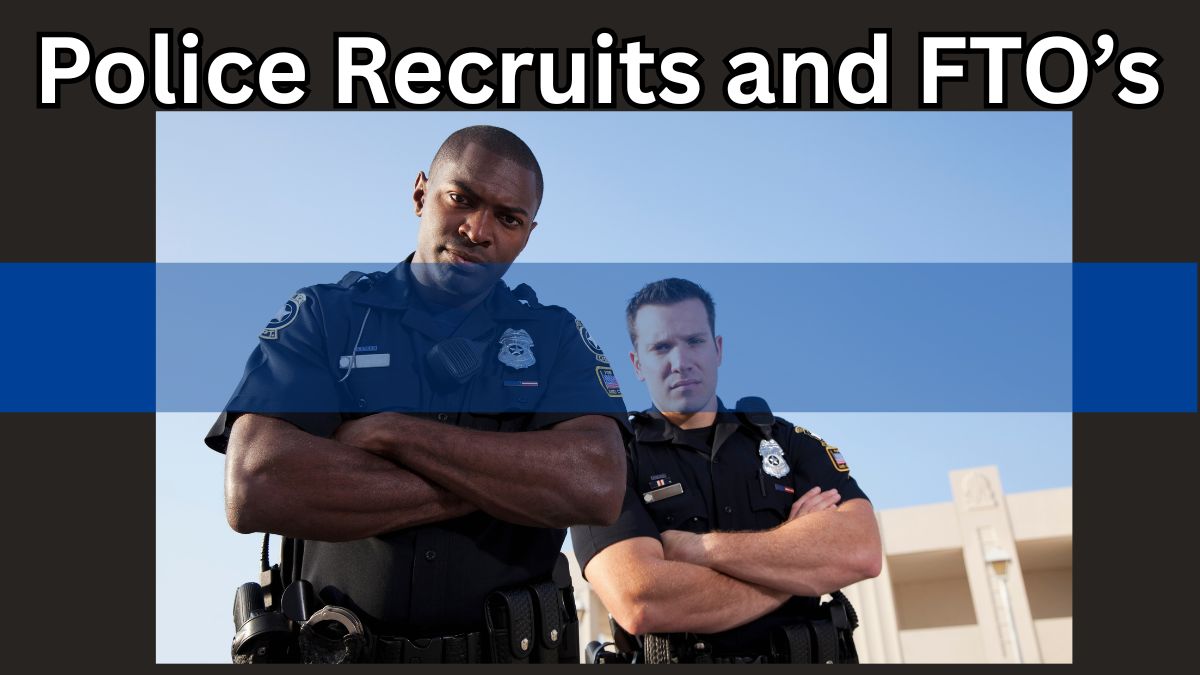The "FTO Factor": The Hidden Risks and Opportunities in Training Arrests
Understanding How Field Training Units Create Unique Leverage Points—and Administrative Chaos—in Criminal Cases
Published on by Attorney Jeff Lotter

In Central Florida, the standard Uniform Patrol Division operates on a "one officer, one car" basis. When you see two officers in a patrol vehicle, it usually means one of two things: a Tactical Patrol Unit (experienced officers doubled up to target violent crime) or a Field Training Unit (an experienced Field Training Officer supervising a Trainee).
Distinguishing between the two is the first step in a competent defense. If it's a Tactical Unit, you are dealing with two veterans. But if it is an FTO scenario, the dynamic changes entirely.
At Lotter Law, we don't view an FTO presence as a guaranteed win—good training officers produce good arrests. However, the training environment introduces unique leverage points and unique headaches. We don't just look for legal mistakes; we look for the systemic pressures that compromise an investigation and the administrative errors that disrupt your life.
The Three Leverage Points: Finding the Cracks
We analyze the officer's tenure and training phase to determine if your arrest was driven by evidence or by the pressure of the training program.
1. The "Graduation Pressure" (The Hidden Quota)
Police training is divided into phases. To graduate from one phase to the next, a Trainee often has to demonstrate proficiency in specific tasks.
- The Scenario: A Trainee is in the final days of Phase 3 and must successfully complete a DUI investigation to advance.
- The Leverage: This creates an inherent conflict of interest. Is the officer arresting you because the evidence supports it, or because their career progression requires it? When an officer's promotion depends on making an arrest, their independent judgment is compromised.
2. The "Report Card" Trap (DORs and Richardson Hearings)
Most attorneys only read the Arrest Affidavit. They miss the "shadow report." Every single day, an FTO writes a Daily Observation Report (DOR) grading the Trainee's performance. These reports are detailed, brutal, and—crucially—often evaluated on the specific call involving our client.
- The Leverage: If the DOR says, "Trainee seemed unsure of the law regarding Field Sobriety Exercises," that is critical evidence. These reports are rarely provided in standard discovery. When we demand them and the State fails to produce them, it can trigger a Richardson Hearing (a hearing regarding discovery violations), giving us massive leverage in plea negotiations.
3. The Information Gap (The Communication Wedge)
In the chaos of a scene, duties are divided. The FTO might get the briefing from other officers while the Trainee talks to the driver.
- The Scenario: The FTO knows the legal reason for the stop. The Trainee conducts the stop. But if they never synced up, the Trainee might be making an arrest without personally possessing the legal justification for it.
- The Leverage: We analyze the body camera footage to see if the "left hand knew what the right hand was doing." If the communication link was broken, the probable cause for the arrest may be broken too.
The "Rookie Tax": Administrative Headaches
While an officer's lack of experience can provide leverage in court, it often creates immediate chaos in your daily life.
New officers are often hyper-focused on the "excitement" of the arrest—the handcuffs and the transport—but are woefully under-prepared for the bureaucratic aftermath. In Florida, the paperwork is often just as important as the patrol work, and when a Trainee screws it up, you are the one who pays the price.
The DUI Paperwork Pitfall
We see this constantly in DUI cases. Florida's administrative license suspension laws are rigid. To obtain a hardship license (Business Purposes Only) immediately after an arrest, specific forms must be submitted to the DHSMV correctly and instantly.
- The Mistake: A Trainee, unfamiliar with the specific DHSMV workflow, might fail to submit the citation packet, fill out the suspension notice with the wrong statute code, or misplace the physical license.
- The Consequence: You go to the Bureau of Administrative Reviews expecting to get your hardship license so you can drive to work. Instead, you are turned away because the system shows "No Record" or "Invalid Entry" due to the officer's clerical error.
Suddenly, you are eligible for a license but unable to get one. You are left navigating a bureaucratic nightmare solely because the arresting officer is still learning how to do their "homework."
The Lotter Law Difference
Hiring us doesn't mean we manufacture a defense out of thin air. It means we know where to look.
We inspect the tenure of the officer, the phase of their training, and the "report cards" the State hopes we won't ask for. We also intervene early to correct the administrative errors that threaten your ability to drive. We do this to ensure that your freedom—and your driver's license—aren't the price of a rookie's education.
Related Resources
Practice Areas
- DUI Defense - Where training errors often make the difference
- Criminal Traffic - Administrative issues and your driving privileges
- Other Criminal Defense - Protecting your rights at every stage
Don't Let a Rookie's Mistake Define Your Future
If you've been arrested by a Field Training Unit or are experiencing administrative issues with your license after a DUI arrest, time is critical. The 10-day window for hardship license eligibility moves fast, and the earlier we intervene, the better your chances of protecting both your case and your livelihood.
Legal Disclaimer:
This article is for educational purposes only and does not constitute legal advice. Every case involves unique facts that require individual analysis. Consult with an attorney about your specific situation.
Attorney Jeff Lotter is a Board Certified Criminal Trial Lawyer with extensive trial experience in both state and federal courts throughout Central Florida.